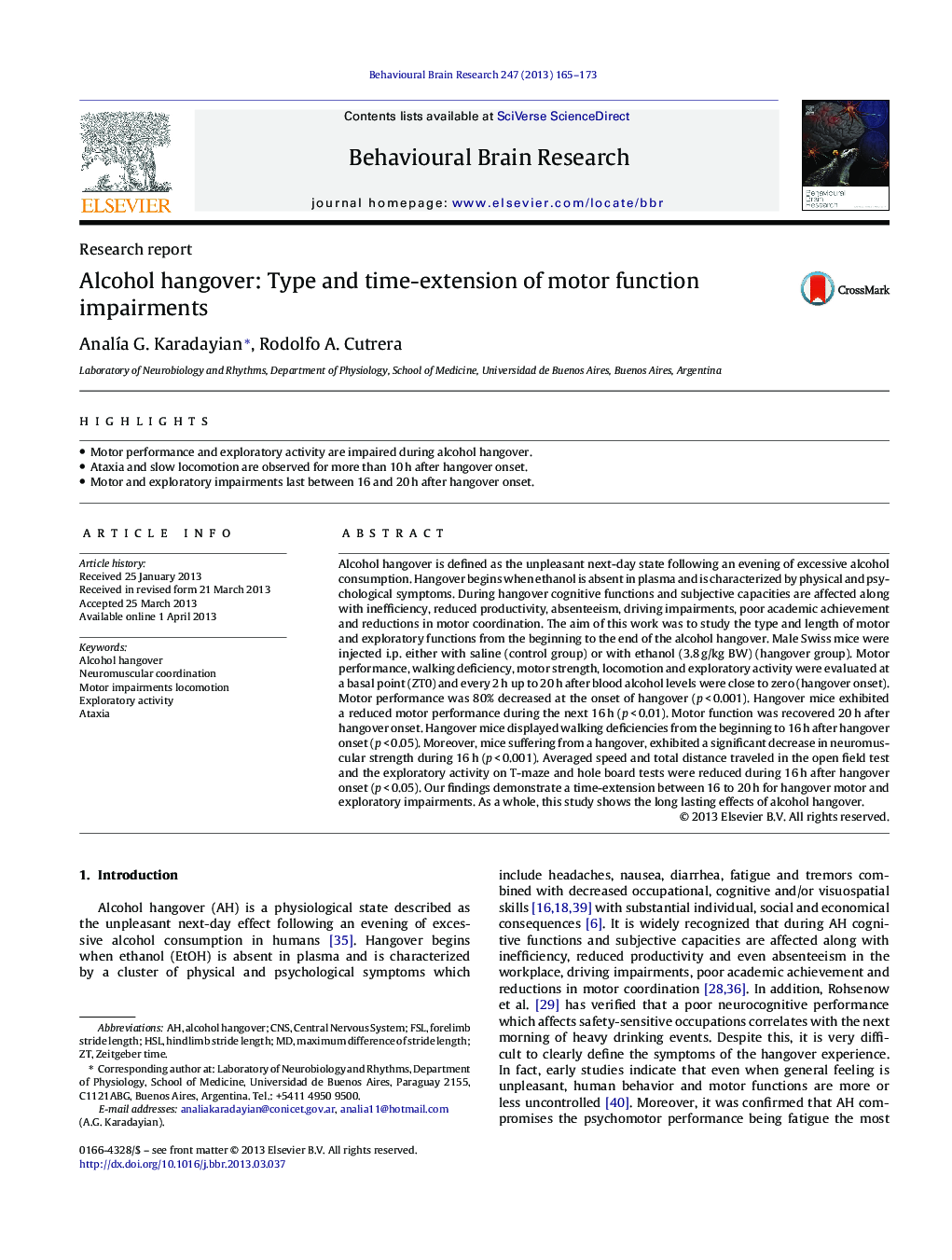| Article ID | Journal | Published Year | Pages | File Type |
|---|---|---|---|---|
| 4312680 | Behavioural Brain Research | 2013 | 9 Pages |
•Motor performance and exploratory activity are impaired during alcohol hangover.•Ataxia and slow locomotion are observed for more than 10 h after hangover onset.•Motor and exploratory impairments last between 16 and 20 h after hangover onset.
Alcohol hangover is defined as the unpleasant next-day state following an evening of excessive alcohol consumption. Hangover begins when ethanol is absent in plasma and is characterized by physical and psychological symptoms. During hangover cognitive functions and subjective capacities are affected along with inefficiency, reduced productivity, absenteeism, driving impairments, poor academic achievement and reductions in motor coordination. The aim of this work was to study the type and length of motor and exploratory functions from the beginning to the end of the alcohol hangover. Male Swiss mice were injected i.p. either with saline (control group) or with ethanol (3.8 g/kg BW) (hangover group). Motor performance, walking deficiency, motor strength, locomotion and exploratory activity were evaluated at a basal point (ZT0) and every 2 h up to 20 h after blood alcohol levels were close to zero (hangover onset). Motor performance was 80% decreased at the onset of hangover (p < 0.001). Hangover mice exhibited a reduced motor performance during the next 16 h (p < 0.01). Motor function was recovered 20 h after hangover onset. Hangover mice displayed walking deficiencies from the beginning to 16 h after hangover onset (p < 0.05). Moreover, mice suffering from a hangover, exhibited a significant decrease in neuromuscular strength during 16 h (p < 0.001). Averaged speed and total distance traveled in the open field test and the exploratory activity on T-maze and hole board tests were reduced during 16 h after hangover onset (p < 0.05). Our findings demonstrate a time-extension between 16 to 20 h for hangover motor and exploratory impairments. As a whole, this study shows the long lasting effects of alcohol hangover.
